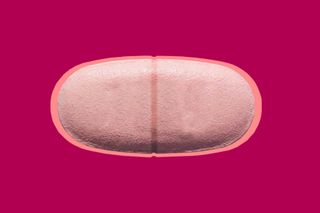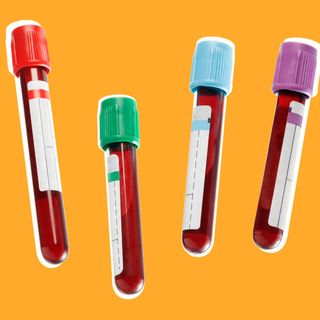
Where’s the Female Libido Pill Now?
Why the ‘little pink pill’ has seen little success.

In 2015, the headlines were everywhere. The world was on the verge of ‘Pink Viagra’ — a kind of sildenafil for women. Actually called flibanserin, it has mental rather than physiological effects, but the nomenclature stuck because it was easier than describing what the drug actually does: it helps women who don’t want to have sex, but want to want to have sex, want to have sex. A breakthrough, a marvel, an empowering reply-all to erectile dysfunction spam — a fix for the female libido.
Three years later, crickets.
What has happened in the intervening years is sketched out in a recent Bloomberg News report that delves into the drug’s full history, and probably the inspiration for a Netflix miniseries in the near future. The main character would be Cindy Eckert, original and now-reinstated CEO of Sprout Pharmaceuticals, the company that she founded to bring flibanserin, commercially named Addyi, to market. Right after Addyi’s third and successful attempt at FDA approval and appearance on the market, Eckert sold Sprout to Valeant Pharmaceuticals International Inc., which “immediately faced a distribution scandal having nothing to do with Addyi, and the drug was dragged down with the rest of the company,” Cynthia Koons writes. “It’s languished ever since. In a typical month, about 600 prescriptions are filled, compared with almost 800,000 for erectile dysfunction drugs Cialis, Viagra, and Viagra’s generic equivalent.”
Eckert bought back Sprout for a pittance last year and remains deeply committed to bringing Addyi to more women; she has seen the drug not only as a matter of health, but also as a form of empowerment, from the beginning, when she founded Sprout in order to develop flibanserin, a failed medication for depression, into Addyi, a treatment for low female libido. Earlier this month, Sprout launched an online prescription service for the medication, Koons reports.
But the barriers to Addyi’s uptake have not been entirely corporate. Within the pharmaceutical and medical community, debate still rages whether the condition Addyi has been approved to treat — female sexual interest/arousal disorder — is a real disorder. Critics say it furthers Western medicine’s long history of classifying the female libido in any degree as a mental health disorder in need of regulating. Others say Addyi would be less empowering of women than a boon to men. When news broke of its FDA approval, there were (questionably accurate) reports of men calling clinicians to request the drug for their wives — despite widespread coverage that the drug wouldn’t be available in India for years while it underwent clinical testing.
Indeed, given the drug’s purpose — increasing female sex drive — it’s questionable if it would ever be approved in India. Concerns about female promiscuity has kept even more effective, more critical medications like the HPV vaccine from widespread medical embrace. While critics argue understanding the female libido and the social and environmental factors that boost or inhibit it is a better option than medication, for the time being at least, it remains women’s only option. Put like that, it’s easy to buy into Eckert’s vision of empowerment — perhaps, one day, quite literally.
Liesl Goecker is The Swaddle's managing editor.
Related


Helicopter Parenting May Inhibit Skill Crucial to School Success
